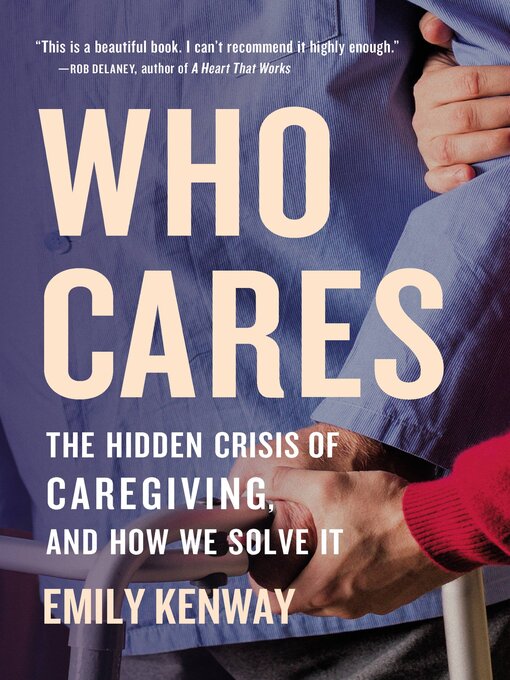An intimate and deeply researched account of the experiences of unpaid caregivers, this “beautiful book” (Rob Delaney) calls for us all to put care at the center of our lives
When Emily Kenway became the primary caregiver for her terminally ill mother, her life was changed forever. Although she was lonely, she was far from alone: millions of caregivers all around the world are silently suffering from poverty, isolation, and burnout. Saving their nations’ economies billions by providing nonprofessional care, these people—primarily women—remain largely ignored by politicians, in part because the demands of care itself keep them from effectively advocating for their needs. In Who Cares, Kenway brings the caregiving crisis into the light. Blending expert research with insights from her own experience, Kenway shows us that building a world that cares for its caregivers requires us to fundamentally reimagine the role of care in our society, bringing it from the margins to the center of our collective life.
Powerful and deeply reported, Who Cares is an essential read for anyone who has ever cared for, or will receive care from, another person—which is to say, for everyone.


